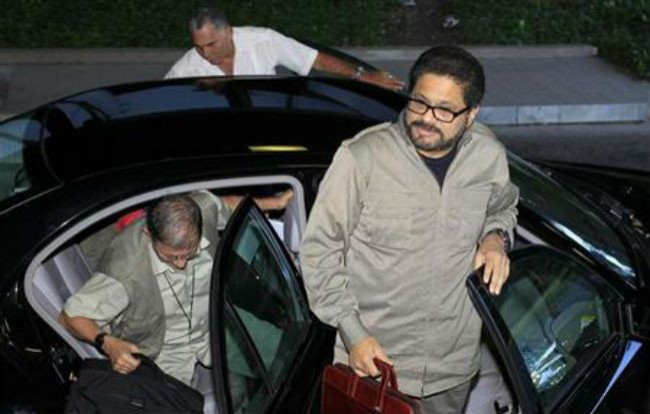
Talks to end Colombia's bloody, half-century-long conflict with Marxist-led FARC rebels have made progress, but many challenges lie ahead, the government's top negotiator said on Friday.
Former vice president Humberto de la Calle, speaking after the two sides finished their second round of meetings and broke until January 14, said they had agreed on some "unprecedented mechanisms" for civic input into the peace process.
"Since November 19 when we formally began, we've had 21 sessions and more than 100 hours of intense work, and concrete advances, all as expected," said de la Calle, who read a statement but did not take questions.
"The challenge is great. We have five more points (on the agenda), all sensitive and vital," he said. "We hope to be able to advance with greater celerity and in an expedited way."
The two sides are trying to end a war that dates back to 1964 when the FARC, or Revolutionary Armed Forces of Colombia, was formed as a communist agrarian movement to fight the country's long history of social inequality.
Tens of thousands of people have died and millions have been displaced in South America's last Marxist-led armed rebellion, a vestige of the Cold War.
Three previous peace attempts have failed, but Colombian President Juan Manuel Santos hopes a decade-long, U.S.-backed offensive has weakened the rebels enough that they will want to end the fighting on the best possible terms.
If peace is not achieved, the FARC still has 9,000 troops that can keep inflicting damage on the continent's fourth-largest economy.
The negotiations, which are being held in a Havana convention center in the ritziest part of the Cuban capital, have begun with the topic of rural development, the first of six points to be addressed.
Others range from the rebels' involvement in the illicit drug trade to their future political participation.
De la Calle said so far Colombians, whose opinions are being sought online and in public forums, had provided nearly 3,000 suggestions to aid the peace process, some of which were being closely studied.
He said the negotiators also were receiving ideas from development experts and from peasants about how to improve life for the rural poor in Colombia.
In a joint communique issued on Friday, the two sides said the conversations have been held "in an atmosphere of respect and constructive spirit."
The FARC declared a two-month unilateral ceasefire when the talks began in November in Havana and complained this week that the government had not joined it in laying down arms.
Instead, the government has kept up its offensive, killing at least 20 FARC guerrillas in one attack this month.
Santos has vowed to maintain military pressure instead of allowing the rebels to regroup as they did during previous failed peace talks a decade ago.
He wants to peace process wrapped up by November, 2013, although the rebels said it could take much longer.
FARC negotiators were scheduled to hold a press conference later on Friday.
© Thomson Reuters.




